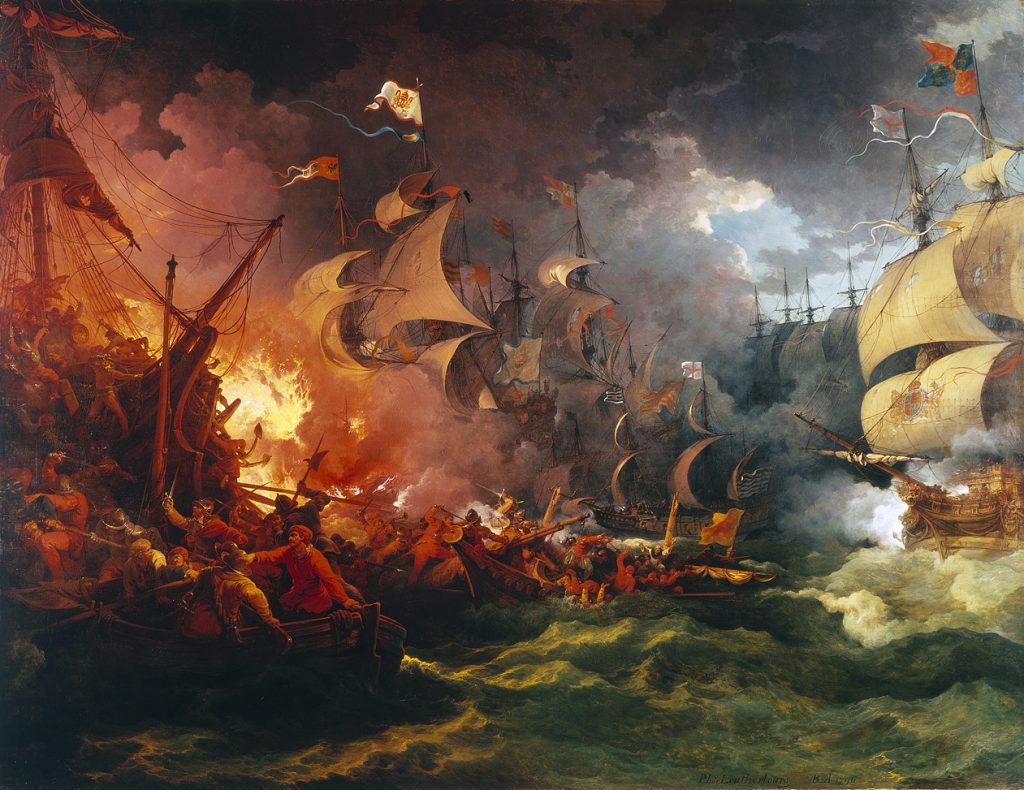“The Defeat of the Spanish Armada” by Philip James (Jacques-Phillipe) De Loutherbourg.

Loutherbourg is a fascinating artist. Born in France, he became a successful painter very young, but moved quite suddenly to London where he reinvented himself as a theatre scenographer. He pretty much invented what we would today call special effects (vfx). He even invented a kind of proto-cinema presentation system. He continued to paint, and this depiction of a slice of English history is a good example of his highly cinematic style: lurid colours, dramatic composition, intense sublime.
Loutherbourg was a keen alchemist and follower of occult practices. For a couple of years he even quit art and became a faith healer. That didn’t really work out.
Amazing, underrated and visually stunning, Loutherbourg’s paintings all deserve another look.
This picture is the best visual representation of the defeat of the Armada we have; the various films that have been made of the event aren’t nearly as evocative. Kapur’s Elizabeth the Golden Age is pretty bad actually in terms of the battle scenes.
It would take until 1979 that a war film would have the courage to create visuals like this painting does – and that film is Apocalypse Now shot by the brilliant Vittorio Storaro.
In terms of fantastic sea battles, the most Loutherbourgian one I can think of is Pacific Rim.
#arthistory #film #cinema #vfx #arthistoryfilm #painting #art
